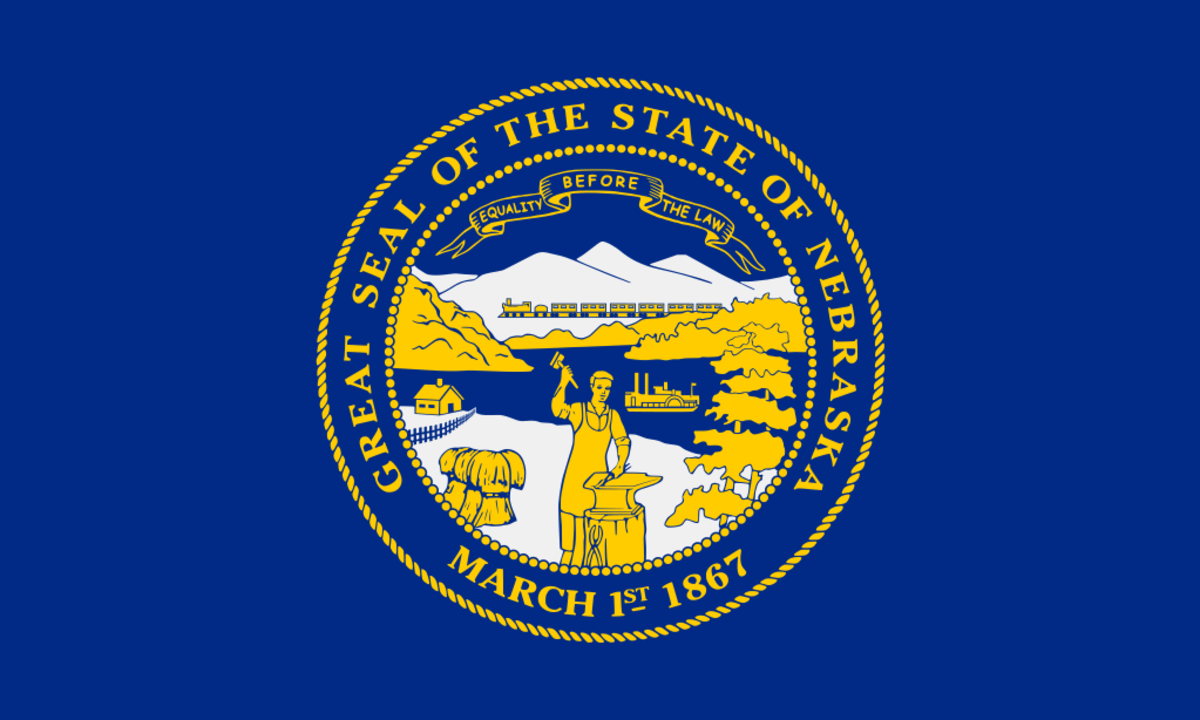Nebraska Personal Injury Laws

Personal injury encompasses a vast area of the law. It covers workplace accidents, vehicular crashes, premises and product liability, and medical negligence, among others. The Nebraska Department of Transportation's Crash Facts Report states that out of the 29,418 traffic accidents reported in 2020, 9,847 caused injuries and 217 resulted in fatalities. The provided statistics translate to 39 individuals injured in a traffic accident per day and one person losing their life on state roads every 38 hours.
In an effort to reduce severe injuries and traffic deaths, the Nebraska Interagency Safety Committee has updated the Strategic Highway Safety Plan, which allows them to direct their efforts on the Six Critical Emphasis Areas:
Increasing seat belt usage.
Reducing roadway departure crashes.
Reducing impaired driving crashes.
Reducing intersection crashes.
Reducing young driver crashes.
Reducing older driver crashes.
Meanwhile, a report released by the U.S. Bureau of Labor Statistics also shows that transportation incidents account for 62% of all fatal workplace injuries in Nebraska in 2021. Falls, slips, trips, and contact with workplace objects and equipment have also contributed to the state’s fatal occupational injuries.
If you have been injured due to the negligence of another party, then you reserve the right to seek compensation for your damages and losses. This article will discuss your legal rights protected by Nebraska personal injury laws and provide relevant information you must know when filing a lawsuit.
Car Accident Laws in Nebraska
In the event that you get involved in a traffic collision in Nebraska, you must file a Driver’s Motor Vehicle Accident Report within 10 days, especially if the incident meets any of the following criteria:
Caused at least $1,500 in damages to the property of any one person.
Caused injuries or resulted in the death of any one person.
It is also worth noting that a class III or class IIIA misdemeanor may be charged against parties who flee the scene of a traffic accident.
When it comes to determining fault in car accidents, Nebraska is a comparative fault state. To receive compensation for personal injury or property damage, the plaintiff must be able to prove in court that the other driver bears the majority of the fault. Car accident victims are entitled to compensation for medical expenses, property damage, pain and suffering, lost wages, and rehabilitation costs.
DUI convictions
Plaintiffs need to keep in mind that there is a crucial difference between their civil personal injury case and a driver’s criminal DUI proceeding. You cannot file a DUI charge against the other driver unless the District Attorney or an equivalent government office does so. If the other driver is convicted of a DUI offense, it does not automatically mean that you will receive financial compensation.
A plaintiff’s personal injury claim is a separate legal proceeding from the defendant’s criminal case, but a DUI conviction can help prove the other party’s liability for your injuries. Victims can only receive compensation by filing a claim with the driver’s insurance provider or by proceeding with a civil personal injury lawsuit.
Medical Malpractice Laws in Nebraska
Before filing a lawsuit for medical malpractice in Nebraska, the plaintiff must first submit their proposed complaint to a medical review panel. The primary goal of this review panel procedure is to encourage the parties to resolve their differences out of court by clarifying any misunderstandings related to the medical procedure involved in the case.
The panel is usually made up of three state-licensed doctors and an attorney, and it is responsible for determining whether the plaintiff’s evidence supports the conclusion that the medical practitioner failed to treat the patient according to the required medical standard of care. However, the plaintiff may waive this step and directly file the case with the court.
Along with their medical malpractice attorney, the plaintiff can also work with another medical expert who can establish the defendant’s shortcomings in their profession. The medical expert must be able to testify that the defendant has deviated from the established standard of care, and that deviation has caused the plaintiff’s injuries.
Workplace Injury Laws in Nebraska
The Nebraska Workers’ Compensation Act gives workers the right to compensation from their employers in the event they sustain a personal injury from a work-related accident or contract an occupational illness due to poor working conditions. This act covers most types of employees, including minors and undocumented immigrants. It also applies to all terms of employment, including temporary, seasonal, part-time, and full-time employees.
Nebraska’s workers' compensation covers the following:
Missed wages, if the employee needs to take time away from work due to work-related injuries.
Treatment for repetitive strain injuries, such as carpal tunnel syndrome.
Disability benefits, if a disability prevents the employee from returning to work.
Funeral costs and death benefits to beneficiaries, if the employee loses their life in a work-related accident.
Federal employees, railroad workers, volunteers, independent contractors, and agricultural employees are not covered by the act. However, federal employees can still seek compensation through the Federal Employees’ Compensation Act, while injured railroad workers may be eligible to file a Federal Employers’ Liability Act claim.
No-fault Compensation System
Nebraska follows a no-fault compensation system for injured workers, which means that you do not need to prove liability, fault, or negligence to make a claim. Employees are entitled to compensation for an accident that occurs while they are working or running an errand for their employer, regardless of whether their job requires them to go to a client’s house, a construction site, or any other field location.
Exposure Illness
Certain diseases or health issues may develop or worsen over time due to exposure to unsafe working conditions. For instance, the presence of asbestos, which is common on construction sites, can have negative effects on the health of construction workers. Exposure to loud noise can also lead to neurological issues and hearing loss.
Proving that your injury is due to long-term exposure can be difficult, but working with a Nebraska workers’ compensation attorney can help you advance your case.
Product Liability Laws in Nebraska
Product liability laws in Nebraska cover a wide array of products, the most common of which include home goods, pharmaceuticals, building materials, and farm equipment. Creating a safe product is the manufacturer’s obligation, and product liability lawsuits protect the rights of the victim and future consumers alike.
Federal law divides product defects into two different categories: design defects and manufacturing defects. A design defect refers to an inherent error in the original design of a product, which renders it unsafe for consumer use. On the other hand, manufacturing defects are caused by errors made during the assembly process.
Failure to warn consumers of potential risks associated with product use can also be grounds for product liability claims. The American National Standards Institute maintains and regulates warning labels for products, which should include:
Warnings about the existing hazards and their effects;
Warnings to the consumer about the risks of using the product;
Information about how to avoid the hazard.
Negligence, Strict Liability, and Breach of Warranty
Product liability cases can be categorized into three main types: negligence, strict liability, and breach of warranty.
In a negligence product liability lawsuit, you must be able to demonstrate that the defendant has breached its obligation to sell a safe product. In other words, there must be evidence that the defendant was aware of the product’s defects.
For strict liability claims, you must show that a product flaw is responsible for your injury. Second-hand goods are not covered by this principle of strict liability.
Finally, when you sustain an injury even while using the product as intended by the manufacturer, your case falls under a breach of warranty clause.
Premises Liability Laws in Nebraska
Premises liability law applies to all property owners and managers, which means that they may be held legally responsible for any accidents that take place on their property. It covers private homes, rental spaces, commercial establishments, and government facilities. Some of the common hazards that injure people on private and commercial property include slippery sidewalks, broken stairs and handrails, exposed wires and sharp objects, and uneven walking surfaces.
Inadequate security that leads to assault and injury also falls under premises liability. This means that a victim may also hold the property owner responsible for their damages, even if they are caused by a third party.
Escalator and elevator accidents, which are most common in workplaces, are also covered by premises liability laws. Office building owners should be responsible for the maintenance of such facilities and the hiring of qualified technicians for repairs.
Dog Bite Laws in Nebraska
As per Nebraska Revised Statute 54-601, the owner of any dog shall be strictly responsible for any injuries or damages the dog may cause. The victim reserves the right to seek compensation for their financial losses from the pet owner in court. However, this law does not apply to those who provoke dog attacks, trespassers, or on-duty dogs for law enforcement.
In the case of stray dogs, you may hold the local government accountable for neglecting to maintain safe premises if the attack happened on public property. A Nebraska dog bite injury lawyer can also help plaintiffs investigate the stray dog’s origins. If it can be determined that the dog is technically not a stray and the owner has allowed it to run unchecked, the plaintiff may press charges against the owner.
Nebraska Business Liability Insurance Requirements
Businesses in Nebraska are required by state law to carry two types of insurance: workers’ compensation insurance and commercial auto insurance. The cost of insurance depends on several factors, such as industry and risk, number of employees, and coverage limits.
Workers’ Compensation Insurance
This type of insurance applies to all businesses with one or more part-time or full-time employees. Workers’ compensation should cover medical expenses and lost wages caused by work-related accidents, repetitive stress injuries that may eventually lead to disability, and illnesses that can be attributed to the work environment.
Commercial Auto Insurance
Business-owned vehicles in Nebraska are required to carry commercial auto insurance. State law also outlines the following minimum values for this type of insurance:
$25,000 per person and $50,000 per accident for bodily injury liability.
$25,000 per accident for property damage liability.
$25,000 per person and $50,000 per accident for uninsured motorist coverage.
Higher limits apply to truck and bus companies:
$1,000,000 in total liability coverage for motor carriers with up to 15 seats.
$5,000,000 in total liability coverage for motor carriers with more than 16 seats.
$750,000 for motor carriers that transport non-hazardous materials and weigh less than 10,001 lbs.
$1,0000,000 to $ 5,000,0000 for motor carriers that transport hazardous material and weigh less than 10,001 lbs.
Personal vehicles driven for work purposes should also be covered by hired and non-owned auto insurance, as this type of protection is generally excluded in personal auto policies.
General Liability Insurance
Though not required by law, business owners in Nebraska may also carry other types of insurance, such as general liability insurance. This type of insurance covers any third-party, non-employee bodily injury or property damage that may arise from business operations.
How Much Can Someone Sue For an Injury in Nebraska?
In Nebraska, there is a statutory cap on the amount of money that can be recovered in damages during medical malpractice lawsuits. This damage cap applies to both economic and noneconomic damages, and a plaintiff suing for medical malpractice can only receive a maximum of $2.25 million in both economic and noneconomic damages combined. As for other types of personal injury cases, no such limits have been defined by law.
Nebraska also follows a modified comparative negligence rule that could decrease the available amount of financial recovery that may be collected by a plaintiff. If the plaintiff is found to have partially contributed to the accident or injury, then the compensation they are due will be reduced by an amount equivalent to their percentage of fault.
The Statute of Limitations in Nebraska
The statute of limitations for most personal injury cases in Nebraska is four years, with a few notable exceptions:
For workplace injuries, victims have two years from the date of injury to file their claim.
For wrongful death cases, the bereaved have two years to file from the date of death.
For medical malpractice, the statute of limitations is two years, unless the cause of action couldn't have been reasonably identified within that time frame. In this case, the statute of limitations is one year from the date of discovery.
For injured minors, the statute of limitations is four years from the age of majority (19) in Nebraska. However, parents’ claims for medical expenses will still be subject to the four-year statute of limitations.
Legal Resources for Injured Folks in Nebraska
Nebraska Online Legal Self-Help Center
As part of the Nebraska Supreme Court’s commitment to giving Nebraskans better access to the judicial system, it has compiled the essential forms and information into an online self-help center. It provides a variety of resources, such as county and district court contact information, the definition of common legal terms, an overview of the Nebraska Judicial System, and the things you need to know when representing yourself in court.
Volunteer Lawyers Project
The Volunteer Lawyers Project was started by the Nebraska State Bar Association in 1983 as a statewide pro bono program. In 2022, it has served nearly 8,700 Nebraskans with the help of its volunteer attorneys and other legal professionals. The VLP serves the public through virtual and in-person clinics, courthouse self-help desks, and reduced-fee consultations through direct case placement.
Legal Aid of Nebraska
Legal Aid of Nebraska is a non-profit law office that dedicates its services to low-income Nebraskans. It determines your eligibility for legal assistance by asking questions regarding your household income, demographic information, and your specific legal issue. To learn if you are qualified for its services, you may apply online at lawhelpne.legalaidofnebraska.org or call the following numbers:
1 (800) 527-7249 Elder AccessLine if you are 60 and over.
1 (800) 729-9908 Native American AccessLine if you are Native American.
(402) 348-1060 AccessLine if you live in the Douglas County area.
1 (877) 250-2016 AccessLine if you live outside the Douglas County area.
Nebraska Free Legal Answers
Nebraska Free Legal Answers is a virtual legal advice clinic where qualified individuals can submit their civil legal issues for free, which will be answered by pro bono attorneys in their jurisdiction. It can help with topics like consumer rights, health and disability, unemployment, and civil rights. It is a project of the American Bar Association’s Standing Committee on Pro Bono and Public Service, and its services are available to all participating states.
Expertise.com StaffAuthor
Step into the world of Expertise.com, your go-to hub for credible insights. We don't take accuracy lightly around here. Our squad of expert reviewers, each a maestro in their field, has given the green light to every single article you'll find. From rigorous fact-checking to meticulous evaluations of service providers, we've got it all covered. So feel free to dive in and explore. The information you'll uncover has been stamped with the seal of approval by our top-notch experts.




